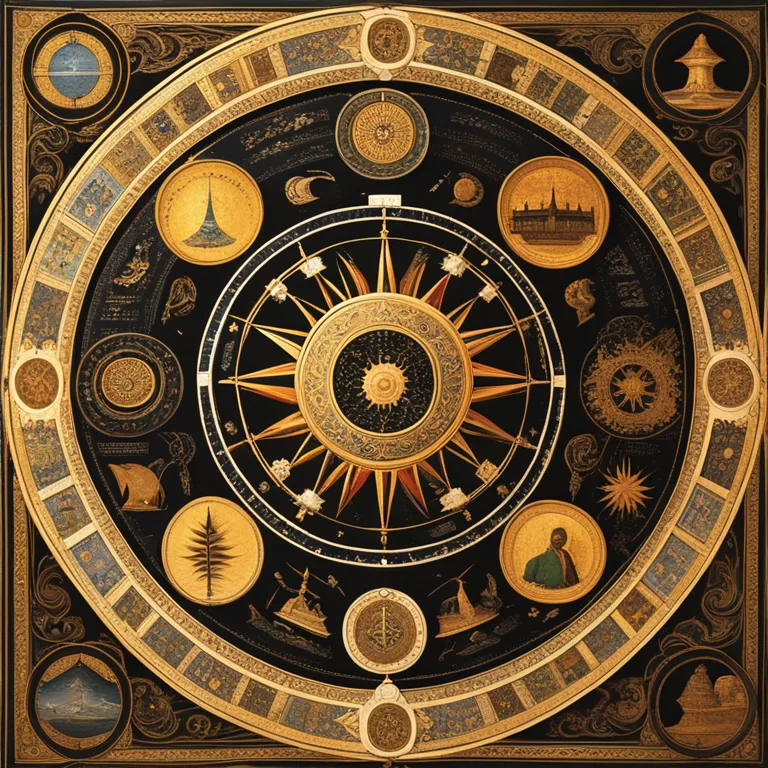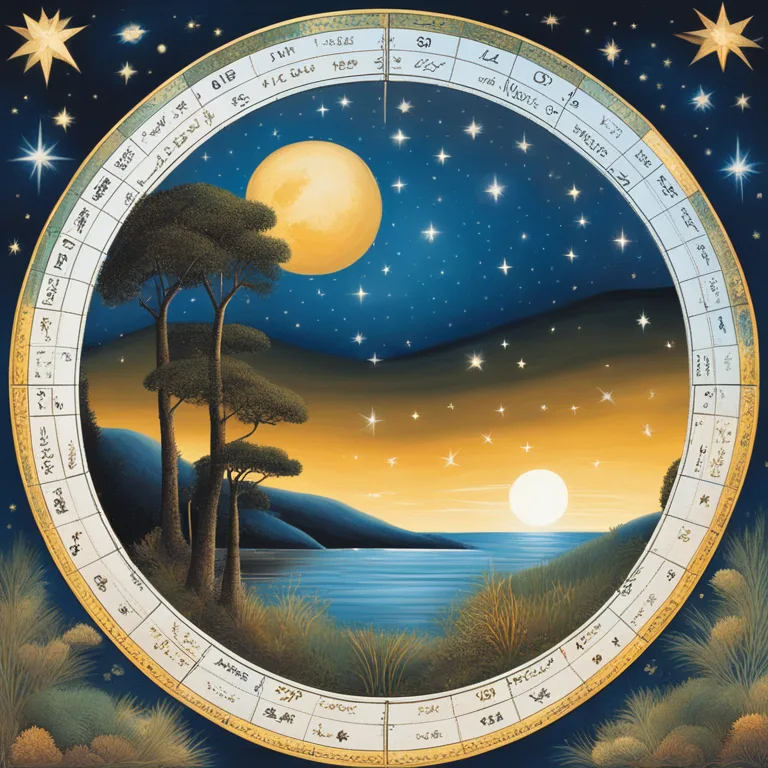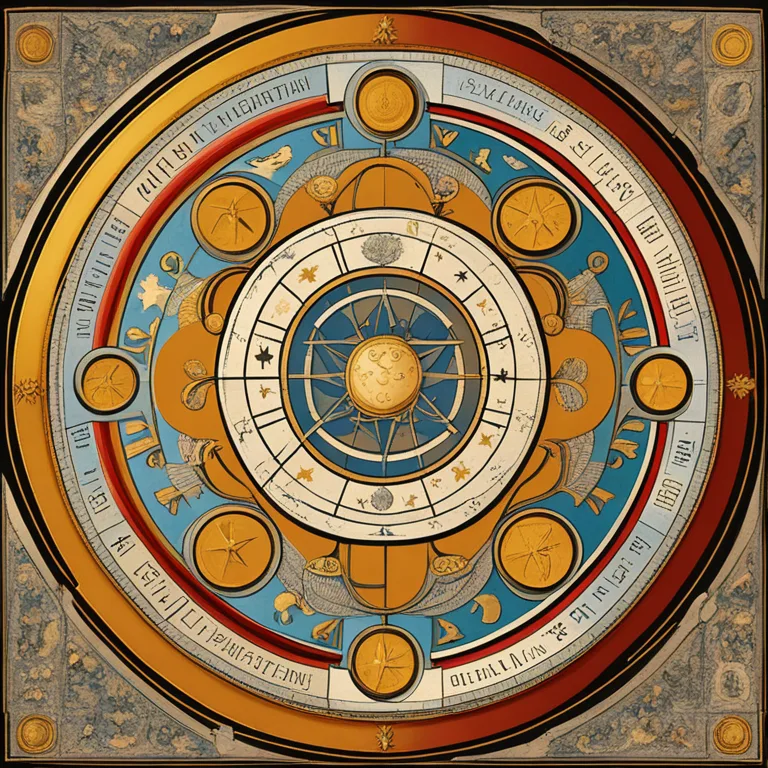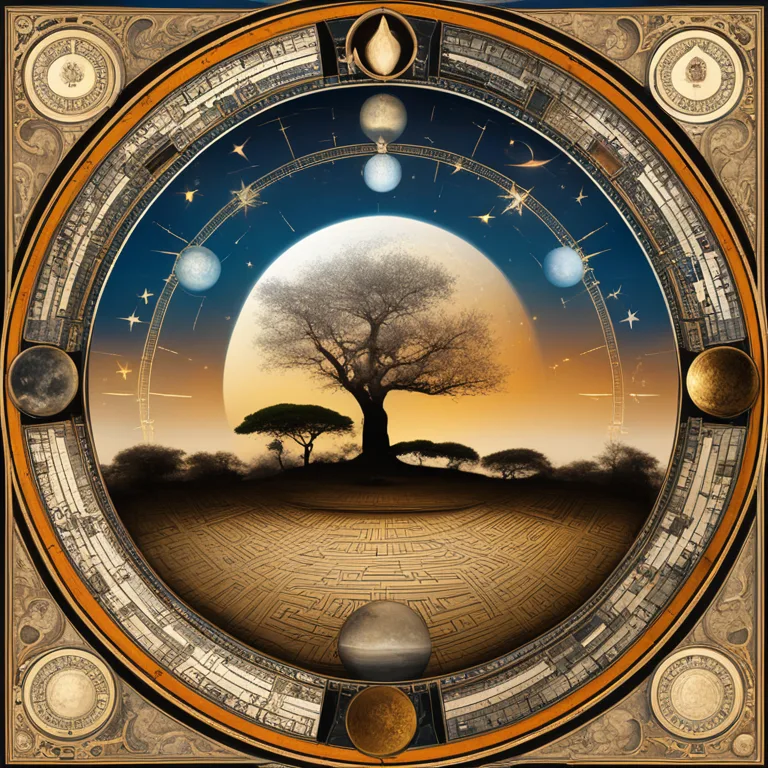
The Ancient Origins of Astrology
An insightful journey into the ancient beginnings and origins of astrology as a cultural and astrological practice.
article by Priya Deshmukh
Roots in Ancient Civilization
Astrology's beginnings are shrouded in the annals of ancient history, tracing back to Babylonian times around the second millennium BCE. These pioneering astrologers observed celestial patterns, believing that heavenly bodies influenced life on Earth. As civilizations like the Egyptians, Greeks, and Romans embraced these ideas, astrology evolved into a more structured system. This pivotal period saw the zodiac's creation with its twelve signs that have persisted through millennia, each tied to specific constellations and reputedly shaping individual destinies.

Astrology and the Natural World
Early astrology was inseparable from astronomy, with both disciplines seeking to chart and make sense of the skies. This holistic approach meant that celestial movements were not only scientifically catalogued but also imbued with spiritual significance. The annual cycles of the Sun, phases of the Moon, and movements of planets were meticulously correlated with earthly events such as harvests, tides, and seasons, leading to the belief in a cosmic synchronicity between the heavens and human affairs.

The Philosophical Underpinnings
Philosophy played a significant role in astrology's development, especially during the Hellenistic period. Astrology began to incorporate elements of Aristotelian thought, which posited that the universe was an interconnected whole. Neoplatonism further reinforced the idea of a sympathetic universe, suggesting that the soul had a celestial origin. Such philosophies provided a framework for astrology to flourish, presenting the stars as a divine manuscript of fate, open to interpretation by those adept in the art.

Spread Across Cultures
Astrology's reach extended with the expansion of empires and the exchange of knowledge along trade routes. The Islamic scholars of the medieval period played a crucial role in preserving and translating ancient astrological texts, bridging the gap between the old world and the Renaissance in Europe. In each culture it touched, astrology was adapted, taking on unique characteristics while retaining the core practice of divining meaning from the stars.

Transition to Modern Astrology
The Enlightenment brought a divide between astrology and the advancing field of astronomy. Yet, the fascination with astrology persisted, transforming throughout the 19th and 20th centuries to suit the contemporary mindset. The popularization of psychological astrology, which ties astrological concepts to the human psyche, has become particularly influential. Today, horoscopes and astrological forecasting cater to the individual quest for self-understanding and purpose, anchored in the alignment of the stars and planets in 2024 and beyond.
Looking to the Future
In looking ahead at astrological forecasts beyond 2024, one can find a reflection of astrology’s enduring appeal. Whether consulting the alignment of Mars for insights into collective drive and ambition or interpreting Saturn's return as a period of critical life reevaluation, astrology continues to offer a celestial perspective on personal and collective experiences. Its evolving nature ensures that it remains relevant, adapting its ancient roots to modern times and needs.
Published: 12/29/2023
Modified: 1/4/2024
More predictions
Come back here soon to learn more about yourself and your future


The Significance Of Your Moon Sign In Astrology
Delve into the significance of your Moon Sign and how it shapes your emotional landscape and inner self in astrology.


The Influence of The Moon Sign in Astrology
Discover the role and impact of your Moon Sign in astrology, offering insights into your emotional inner world and intuition.